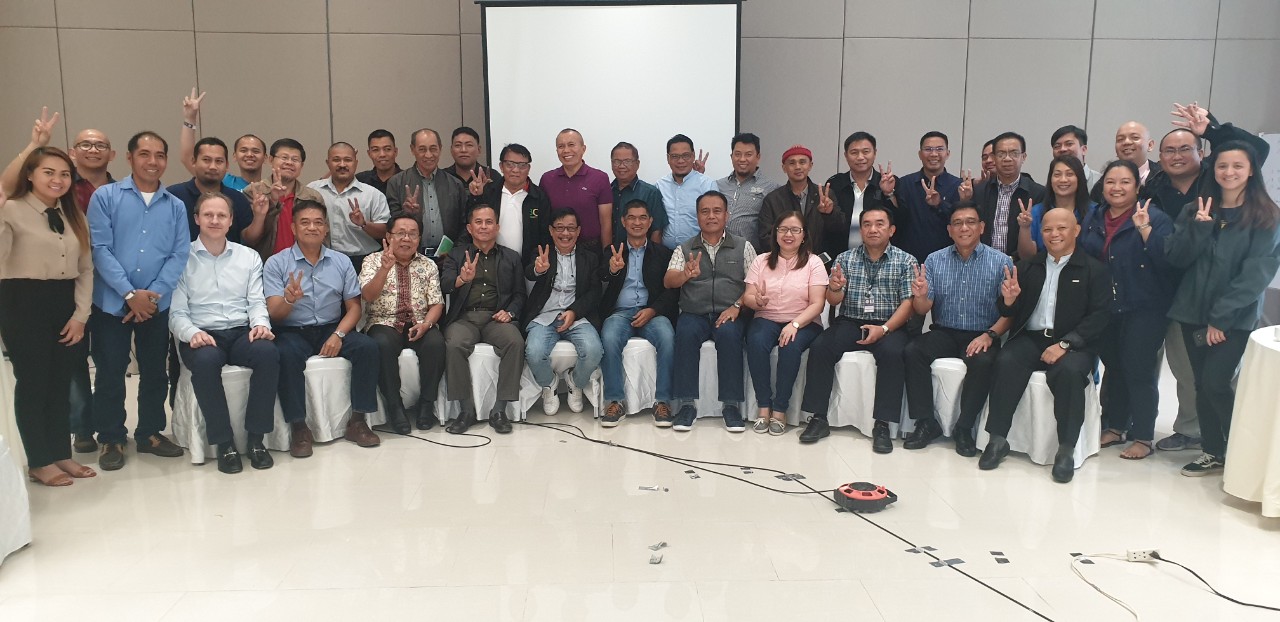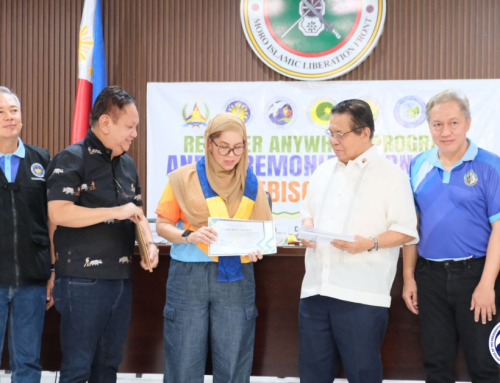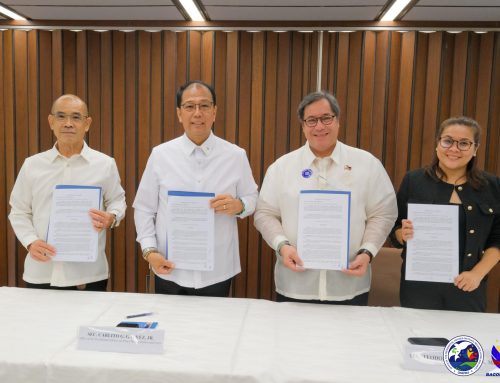ISLAND GARDEN CITY OF SAMAL, June 24, 2019 – Members of the different joint mechanisms under the Normalization Track of the Comprehensive Agreement on the Bangsamoro (CAB) as well as international independent bodies have begun the preparations for the smooth decommissioning of at least 12,000 combatants of the Moro Islamic Liberation Front (MILF), their weapons and camps this year.
According to the co-chairs of the Philippine Government and the MILF Joint Normalization Committee (JNC), the purpose of the two-day meeting over the weekend here is to harmonize the collaborations between the parties and their international partners as the Bangsamoro peace process enters a new phase.
“We are in unity to express our hope for faster implementation of the Normalization Track,” Ariel Hernandez, the government’s chair of the JNC and a member of the Government Implementing Panel.
“We want to substantiate the ‘jointess’ of these mechanisms,” he said referring to the bodies under the Normalization Track.
“Our aim here is for the normalization process to be felt down to the households of the (MILF) communities,” Hernandez summed up.
Eduard Guerra, the chair of the MILF’s JNC, emphasized that a strong partnership is the key to surmount the challenges in the Normalization process.
“We should work in partnership and always with consultation,” he said.
The CAB, which was signed by the government and the MILF in 2014 has two tracks: the Political and Normalization tracks. The Political Track includes the ratification of the Bangsamoro Organic Law (BOL) and establishment of the Bangsamoro Autonomous Region in Muslim Mindanao (BARMM). The Normalization track mainly involves the decommissioning of the combatants and putting their weapons beyond use, and the transformation of six MILF camps into peaceful and resilient communities.
The Normalization track as stated in the CAB is a process whereby conflict-affected communities can “return to conditions where they can achieve their desired quality of life, which includes the pursuit of sustainable livelihoods and political participation within a peaceful deliberative society.”
President Rodrigo Duterte on April has signed the Executive Order (EO) 79 Implementing the Annex on Normalization to consolidate the efforts of at least 17 government agencies involved in the said process.
Following the issuance of the EO, the government has activated the Inter-Cabinet Cluster Mechanism on Normalization (ICCMN) to determine the roles of each member agency.
Presidential Peace Adviser Carlito Galvez Jr. said it is critical for the Normalization process to address the “drivers and triggers” that breed conflict in these communities in Mindanao.
He noted this is “through eliminating the conditions and vulnerabilities for potential conflict, changing the behavioral patterns and mindset of individuals and organizations, and pushing them to work to achieve harmony, interdependence, and the common good.”
Normalization Components
The Normalization Track will be implemented through four different components to ensure that the intervention is comprehensive. The components are subdivided into the security aspect, socio-economic development program, confidence-building measures, and transitional justice and reconciliation.
Each of these components has a specialized joint body composed of different government agencies and the MILF.
Establishing long-term Peace and Security
The security component covers the decommissioning of the combatants, management of small and light weapons, the establishment of the Joint Peace and Security Teams (JPST), clearing of unexploded ordnance, disbandment of private armed groups, and the redeployment of state troopers.
The decommissioning shall be carried out by the Independent Decommissioning Body (IDB). Its members include three foreign experts led by a chairperson and three local representatives designated by the government and MILF panels.
Socio-economic development
Moreover, the socio-economic aspect of Normalization shall focus on the implementation of development efforts for the rehabilitation and reconstruction of the BARMM, particularly communities that have been ravaged by armed conflict.
Programs under this aspect are community-based and designed to foster social cohesion and strengthen solidarity among the people. They include the transformation of the MILF camps into productive and peaceful communities.
Confidence-building and Transitional Justice
While the Confidence-building measures will cover evaluation on amnesty and pardon for those MILF members charged and convicted of crimes and offenses in relation with the armed conflict.
The transitional justice, on the other hand, will focus on dealing with the past and healing the social wounds caused by the decades-old armed conflict. This is to promote reconciliation and cultural harmony in the Bangsamoro.###











